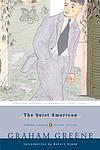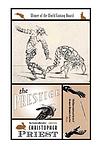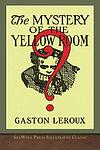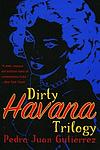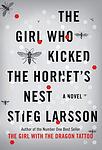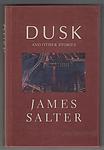The Greatest "Fiction, Journalists" Books of All Time
Click to learn how this list is calculated.
This list represents a comprehensive and trusted collection of the greatest books. Developed through a specialized algorithm, it brings together 300 'best of' book lists to form a definitive guide to the world's most acclaimed books. For those interested in how these books are chosen, additional details can be found on the rankings page.
Genres
The category of "Journalists" in books refers to works of fiction or non-fiction that focus on the lives and experiences of journalists. These books may explore the challenges and rewards of the profession, the ethical dilemmas faced by reporters, or the impact of journalism on society. They may also delve into the personal lives of journalists, including their relationships, struggles, and triumphs. Overall, books in this category offer a unique perspective on the world of journalism and the people who work in it.
Countries
Date Range
Reading Statistics
Click the button below to see how many of these books you've read!
Download
If you're interested in downloading this list as a CSV file for use in a spreadsheet application, you can easily do so by clicking the button below. Please note that to ensure a manageable file size and faster download, the CSV will include details for only the first 500 books.
Download-
1. Nineteen Eighty Four by George Orwell
Set in a dystopian future, the novel presents a society under the total control of a totalitarian regime, led by the omnipresent Big Brother. The protagonist, a low-ranking member of 'the Party', begins to question the regime and falls in love with a woman, an act of rebellion in a world where independent thought, dissent, and love are prohibited. The novel explores themes of surveillance, censorship, and the manipulation of truth.
-
2. Fear and Loathing in Las Vegas: A Savage Journey to the Heart of the American Dream by Hunter S. Thompson
This book is a semi-autobiographical novel that chronicles the adventures of a journalist and his attorney as they embark on a drug-fueled trip to Las Vegas. The narrative is a wild and hallucinatory exploration of the American Dream, filled with biting social commentary and outrageous antics. The protagonist's quest for the American Dream quickly devolves into an exploration of the darker side of human nature, highlighting the excesses and depravities of 1960s American society.
-
3. A House for Mr. Biswas by V. S. Naipaul
The novel narrates the life of Mr. Biswas, a man of Indian descent living in Trinidad, who struggles against poverty and adversity to achieve personal independence and to build a home for himself and his family. Born into a poor family and married into an oppressive one, he constantly strives for autonomy and identity against the backdrop of post-colonial Trinidad. His dream of owning his own house becomes a symbol of his desire for self-determination and respect in a society that often denies him both.
-
4. Scoop by Evelyn Waugh
"Scoop" is a satirical novel that explores the world of journalism through the lens of an accidental war correspondent. The protagonist, a nature columnist, is mistakenly sent to cover a war in Africa due to a mix-up at a newspaper office. The book humorously depicts his struggles and mishaps as he navigates the chaotic world of war reporting, providing a critique of sensationalist journalism and the often absurd nature of international news.
-
5. The Quiet American by Graham Greene
Set during the French colonial war in Vietnam, this novel follows a British journalist and a young American idealist who become friends and find themselves in a love triangle with a Vietnamese woman. As the war escalates, the journalist becomes disillusioned with the American's naïve political views and the destructive impact of foreign intervention. The story is a critique of American involvement in Vietnam, exploring themes of love, friendship, and moral ambiguity.
-
6. Bel Ami by Guy de Maupassant
"Bel Ami" is a novel set in 19th-century Paris, focusing on the life of an ambitious young man who rises from poverty to wealth and power. It explores themes of corruption, manipulation, and the societal power dynamics of the time. The protagonist utilizes his charm and wit to climb the social ladder, seducing and manipulating several influential women along the way. The story provides a critical look at the French bourgeoisie and the moral decay within this social class.
-
7. Snow Falling on Cedars by David Guterson
Set in the 1950s on the fictional San Piedro Island in the northern Puget Sound region of the state of Washington, the plot revolves around the trial of Kabuo Miyamoto, a Japanese American accused of murdering Carl Heine, a respected fisherman in the close-knit community. The trial really serves as a means of exploring the inter-ethnic tensions of the post-WWII era, as flashbacks reveal the shared history of the island's residents including the forced internment of its Japanese population during the war. The novel also delves into the love affair between Ishmael Chambers, a local reporter, and Hatsue Miyamoto, Kabuo's wife.
-
8. The Alienist by Caleb Carr
Set in 1896 New York City, the novel follows a journalist and his friend, a psychologist (or "alienist"), as they work on an investigation into a series of gruesome murders of boy prostitutes. The team employs psychological profiling and early forensic methods to hunt down the serial killer. The book delves into the seedy underbelly of the city, exploring the grim realities of life at the time.
-
9. The Prestige by Christopher Priest
"The Prestige" is a captivating tale of rivalry and obsession set in the world of 19th-century stage magic. The story follows two magicians, Alfred Borden and Rupert Angier, as they engage in a fierce competition to create the ultimate illusion. As their rivalry escalates, both men become consumed by their craft, resorting to increasingly dangerous and unethical methods to outdo each other. Filled with twists and turns, the novel explores themes of sacrifice, identity, and the price of obsession, leaving readers questioning the nature of reality until the very last page.
-
10. The Mystery Of The Yellow Room by Gaston Leroux
In this thrilling mystery novel, a young journalist is drawn into an intriguing investigation when a renowned scientist is found murdered inside a locked room. With no visible signs of entry or escape, the baffling crime scene becomes the center of attention for the journalist and his detective friend. As they delve deeper into the case, they uncover a web of secrets, false identities, and unexpected twists that will keep readers guessing until the very end.
-
11. Dirty Havana Trilogy by Pedro Juan Gutierrez
This book is a raw and gritty portrayal of life in Havana, Cuba during the economic collapse of the 1990s. The story is narrated by a former journalist turned hustler who lives in the city's slums. The protagonist survives through a series of odd jobs and illegal activities, as he navigates through a world of poverty, violence, and corruption. The narrative is filled with graphic depictions of sex, drugs, and the struggle to survive, providing a stark contrast to the romanticized image of Havana.
-
12. Metaphor and Memory by Cynthia Ozick
In "Metaphor and Memory," the author presents a collection of essays that delve into the intricacies of literature, the power of metaphor, and the significance of memory in shaping human experience and creativity. The work explores the intersection of these themes within the context of Jewish history and identity, literary criticism, and the broader cultural landscape. Through incisive analysis and eloquent prose, the author examines how writers use metaphor to capture the essence of memory, both personal and collective, and how these elements are woven into the fabric of storytelling to illuminate deeper truths about society, morality, and the human condition.
-
13. Millennium Trilogy by Stieg Larsson
The "Millennium Trilogy" is a gripping and intricate series that follows the lives of journalist Mikael Blomkvist and hacker Lisbeth Salander as they uncover dark secrets and navigate a web of corruption, violence, and conspiracy in Sweden. Blomkvist, aided by Salander's exceptional skills, delves into the mysterious disappearance of a wealthy industrialist's niece, leading them to uncover a shocking series of crimes involving powerful individuals. As they work together to expose the truth, they become entangled in a dangerous game that threatens their lives and forces them to confront their own troubled pasts.
-
14. Dusk by James Salter
"Dusk" is a collection of short stories that explore the complexities of human relationships and the fleeting nature of life. The stories delve into the lives of various characters including a pilot, a soldier, and a painter, among others, each grappling with their own personal struggles and experiences. The narratives are imbued with themes of love, loss, regret, and the relentless passage of time, showcasing the author's ability to capture the nuanced emotions and realities of the human condition.
Reading Statistics
Click the button below to see how many of these books you've read!
Download
If you're interested in downloading this list as a CSV file for use in a spreadsheet application, you can easily do so by clicking the button below. Please note that to ensure a manageable file size and faster download, the CSV will include details for only the first 500 books.
Download



